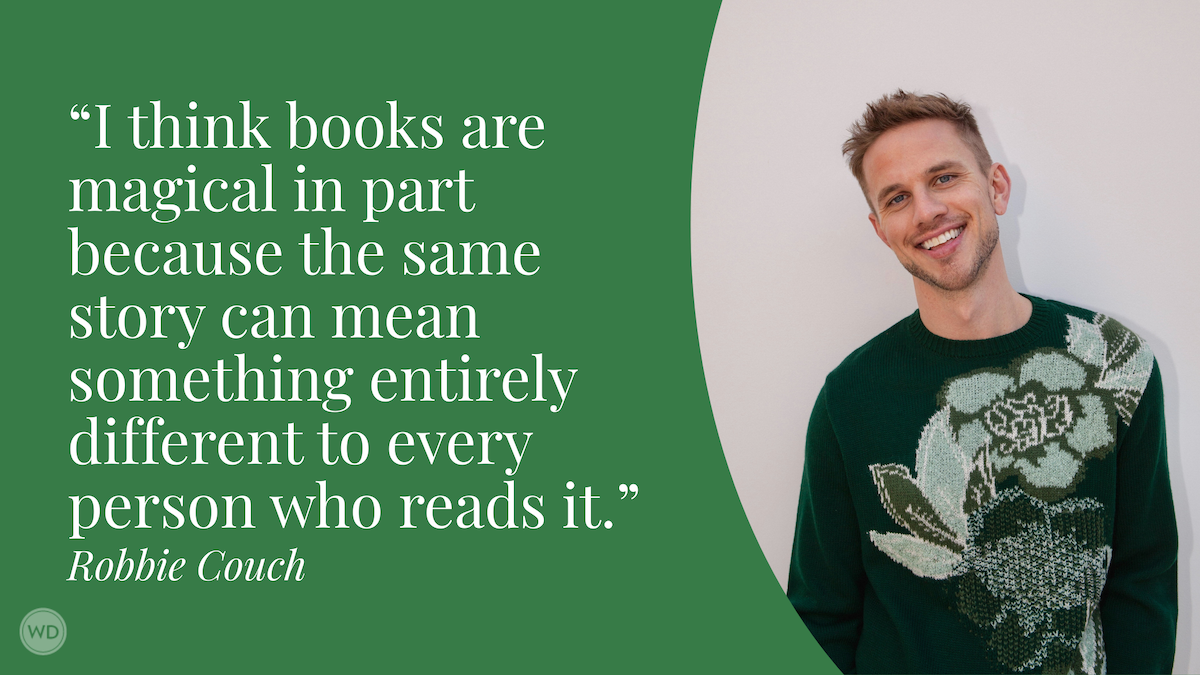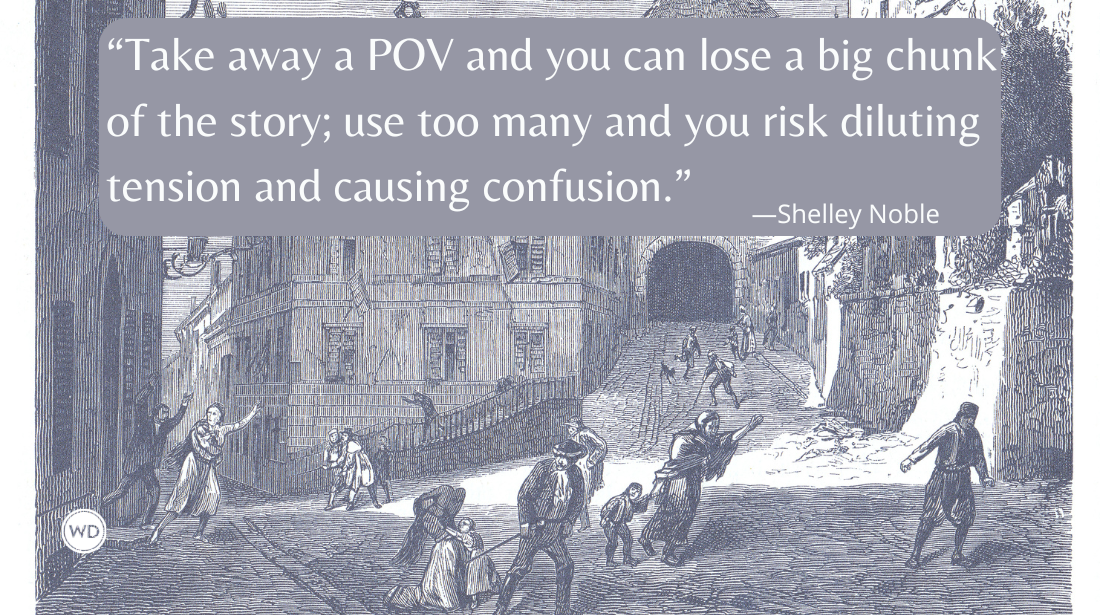8 Novel Writing Insights from Successful Authors
We’ve selected some helpful novel writing tips from authors who have been interviewed in past issues of WD to assist you in getting your story on the page.
[Call for entries: If you write short stories, don’t miss your chance to compete in the Writer’s Digest Popular Fiction Awards!]
Whether you're knee-deep into your first NaNoWriMo or you're working your way meticulously through yet another great book, novel writing tips from those who have walked the same path can be invaluable. Here, we've selected some helpful tidbits of advice from authors who have been interviewed in past issues of Writer's Digest to assist you in getting your story down on the page. From Lisa Gardner and Junot Díaz to Robert Crais and Jojo Moyes, these pros share the keys to novel writing success:
Novel Writing Tips & Insights from Eight Successful Authors
“Everything you could ever think of has been written. That’s worth saying three times. You’re not going to think of a new idea, per se, as far as plot or story. What you can infuse it with is your voice, because while every story has been written, there is only one you. We are unique snowflakes. Be yourself. Tell the story about the teddy bear who can talk, but give it your voice. Don’t try to make it Corduroy or Winnie-the-Pooh. Make it your teddy bear. That’s what you can give the world—give the world your voice.”
—DREW DAYWALT, Writer's Digest Feb. 2016
“I think all art comes from … struggle and search—and, you know, I don’t think it’s something that should come easily. It doesn’t necessarily have to be painful or impossible, but it’s important to recognize and to respect what it is to create something out of nothing—the challenge of it, the difficulties of it—and work from that position.”
—JHUMPA LAHIRI, March/April 2016
“My perspective in writing my own books is that I’m writing about the real world.The world I live in is not all white. I do live in Omaha, so it’s whiter than most places, but even then, that becomes part of the book. In Eleanor & Park, you get Park talking about being one of the only Asian people in a white school. In Fangirl, you get Cath moving from the least white part of the state to the university, which is very white. Race is a part of our lives, and diversity is just a part of our lives. So it feels like a very realistic way to write, to me. I’d feel so ashamed of myself if my books were less diverse than my life.”
—RAINBOW ROWELL, May/June 2016
“I particularly like to write characters who are bits of shades of gray, so we don’t know exactly where they’re going to go. They’re at a turning point in their lives and they’re under extreme stress, because it’s a thriller. So, will this break them? And not even just your main characters, but all the characters. And suddenly there’s something interesting, for me, to show up for in the mornings.”
—LISA GARDNER, July/Aug. 2016
“Dull, awful jobs like laundry, ironing and weeding suddenly feel like an urgent priority when you’re looking at a blank page that needs to be filled with a couple of thousand words before you can sit back and breathe deeply. … Writing is my joy, but not always; much of the time it is my job, and I have to write whether I feel like it or not, whether inspiration strikes or not. Th at is how you make a story unfold.”
—JANE GREEN, Sept. 2016
“My biggest tip for writing is: If you get stuck, move forward to a scene that you’re looking forward to working, and that just tends to give you your joy back. And then often you’ll find that the space between them is actually a lot smaller than you thought it was, and maybe a kind of easier way to work it.”
—JOJO MOYES, Jan. 2016
“I always urge young writers who feel the pressure to produce [more , faster] to spend more time browsing bookstores. I urge them to check how many books any writer tends to have on the shelf. Ours is a culture where it’s lucky for a writer to be remembered for even one book, less three or four. Writing 20 books in your career is wonderful; I wish I had written as much. But ultimately I’d rather write the best book I can write no matter how long it takes me than the best book I can write fast simply because the unrelenting pace of our society demands speed in all things.”
—JUNOT DÍAZ, Oct. 2016
“Successful writing is all about passion … and I think it’s a mistake for anyone to somehow disassociate themselves from that passion, to think that the creation of a compelling piece of fiction can be had simply on intellectual terms. It becomes cold, and I don’t think you want cold. You want heat, you want fire. That’s what we gather around and warm our hands with.”
—ROBERT CRAIS, Nov/Dec 2016
“Show, don’t tell,” might be the single most common piece of advice authors of fiction both give and receive. But what does this actually mean, and how can you apply the concept to your writing? The differences are usually not so easily spelled out. This kit is designed to break down the aspects of "showing" vs. "telling" so that you can create a convincing and believable world for your readers to explore. This collection contains three ebooks and 3 downloadable writing resources that will put your story on the path to success. Learn more and get yours here.
Jess Zafarris is the Executive Director of Marketing & Communications for Gotham Ghostwriters and the former Digital Content Director for Writer’s Digest. Her eight years of experience in digital and print content direction include such roles as editor-in-chief of HOW Design magazine and online content director of HOW and PRINT magazine, as well as writing for the Denver Business Journal, ABC News, and the Memphis Commercial Appeal. She spends much of her spare time researching curious word histories and writing about them at UselessEtymology.com. Follow her at @jesszafarris or @uselessety on Twitter.









